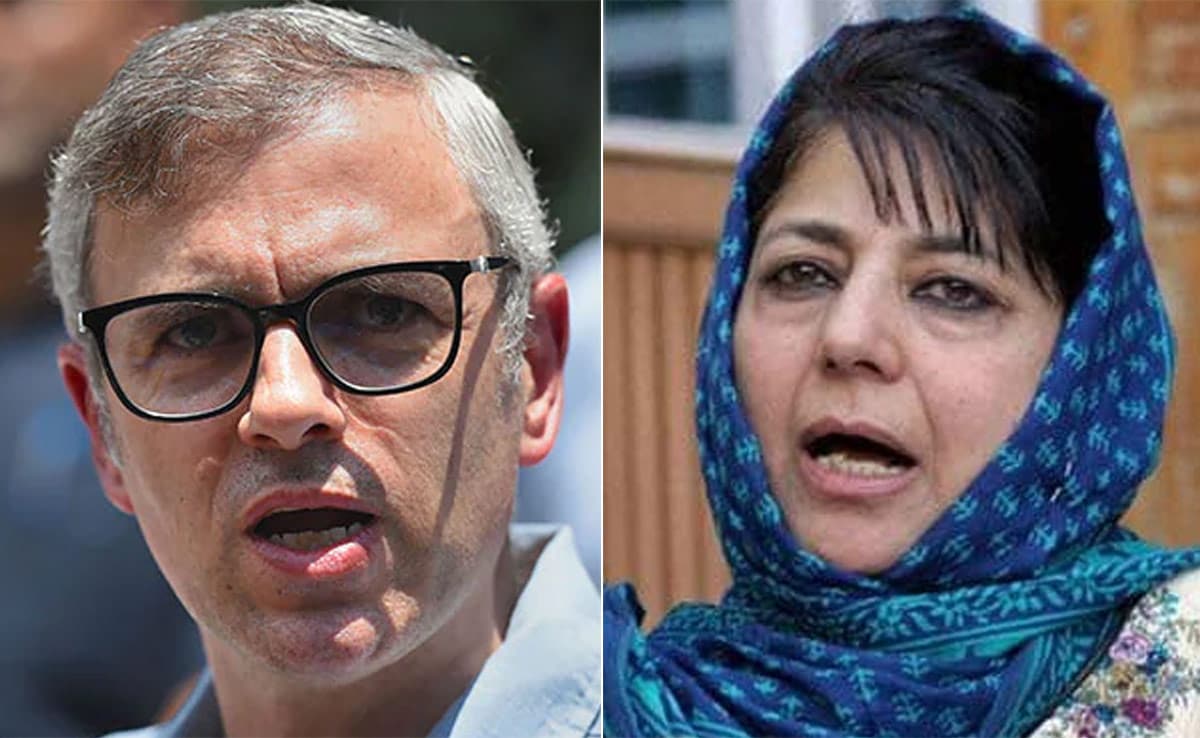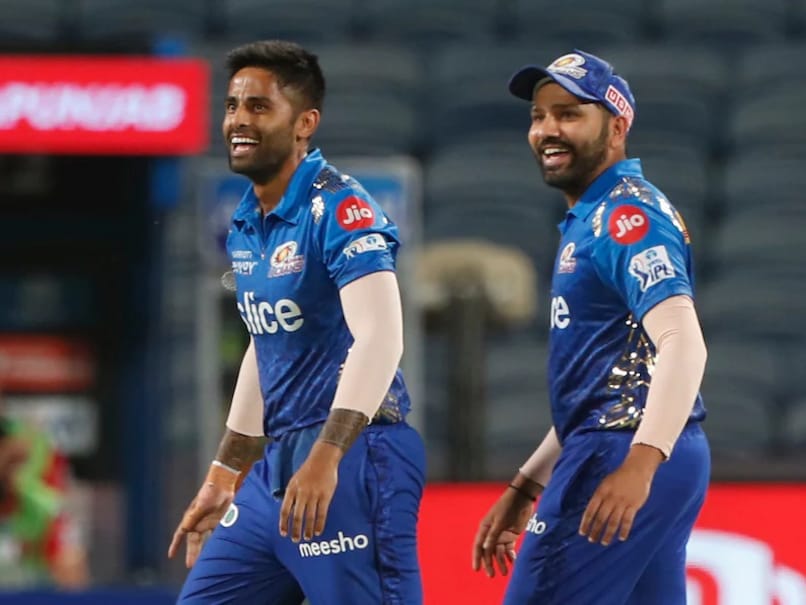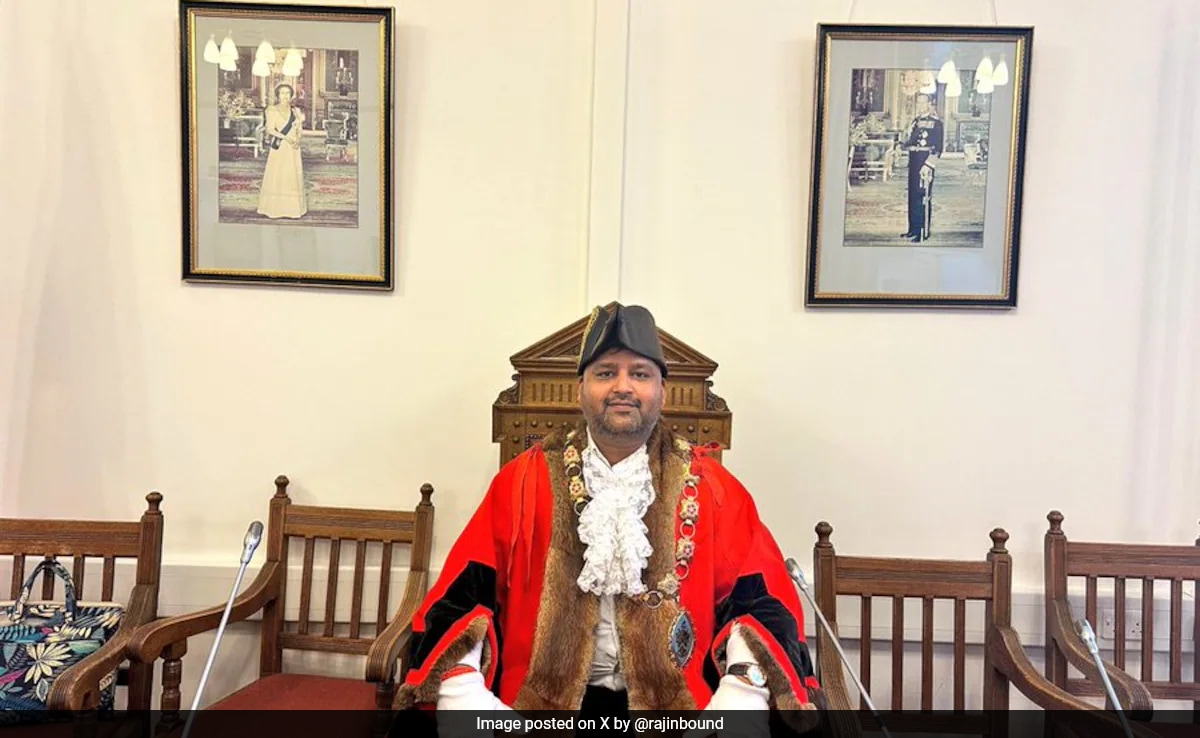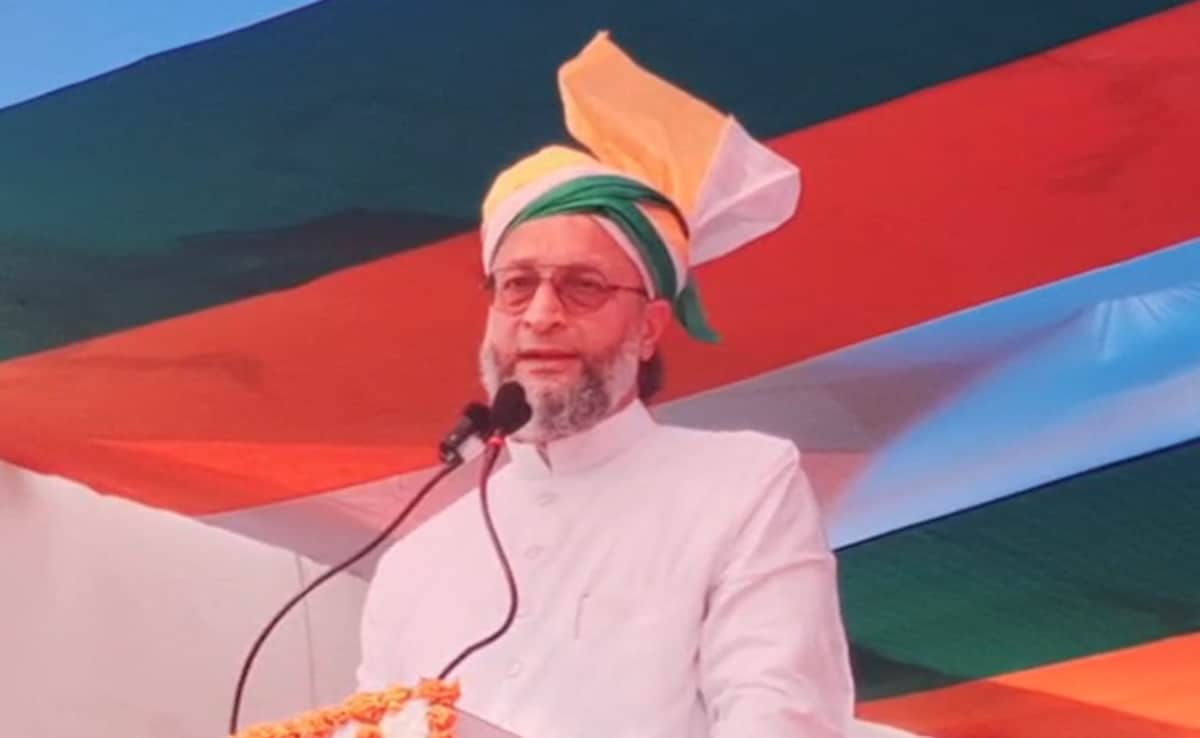A public spat broke out between Jammu & Kashmir Chief Minister Omar Abdullah and his predecessor, Mehbooba Mufti, on social media on Friday over calls for revival of the Tulbul Navigation project, as the latter accused the government of adopting “provocative” measures amid ongoing tensions between India and Pakistan.
Mr Abdullah, however, alleged Ms Mufti was trying to score “cheap publicity points” and “please some people” in Pakistan by opposing the idea.
The Tulbul Navigation project – that seeks to rejuvenate the Jhelum-fed Wular lake in Bandipora district – was kicked off in 1987 but stalled in 2007 amid objections from Pakistan that it violated the Indus Waters Treaty. With India suspending the Treaty on April 23, a day after the Pahalgam terror attack, Mr Abdullah on Thursday called for resumption of work in the project on Wular Lake.
In a post on X, the Chief Minister said that since the water pact with Pakistan has been kept in abeyance, “I wonder if we will be able to resume the project”.
“The Wular lake in North Kashmir. The civil works you see in the video is the Tulbul Navigation Barrage. It was started in the early 1980s but had to be abandoned under pressure from Pakistan citing the Indus Water Treaty,” he wrote on the micro-blogging platform.
The Wular lake in North Kashmir. The civil works you see in the video is the Tulbul Navigation Barrage. It was started in the early 1980s but had to be abandoned under pressure from Pakistan citing the Indus Water Treaty. Now that the IWT has been “temporarily suspended” I… pic.twitter.com/MQbGSXJKvq
— Omar Abdullah (@OmarAbdullah) May 15, 2025
The National Conference leader said that if completed, the Tulbul project can help in using the Jhelum river for navigation purposes. “It will give us the advantage of allowing us to use the Jhelum for navigation. It will also improve the power generation of downstream power projects, especially in winter,” he added.
Under the Indus Waters Treaty governing six common rivers, all the water of the eastern rivers – Sutlej, Beas, and Ravi amounting to around 33 million acre feet (MAF) annually – has been allocated to India for unrestricted use. The waters of western rivers – Indus, Jhelum, and Chenab – amounting to around 135 MAF annually have been assigned largely to Pakistan.
MEHBOOBA MUFTI SLAMS ‘IRRESPONSIBLE’ DEMAND
Ms Mufti, however, launched a scathing attack on Mr Abdullah and labelled his call as “irresponsible and dangerously provocative”.
The Chief Minister’s call to revive the Tulbul Navigation Project amid tensions between India and Pakistan is “deeply unfortunate”, she said in a post on X. “At a time when both countries have just stepped back from the brink of a full-fledged war – with Jammu & Kashmir bearing the brunt through the loss of innocent lives, widespread destruction and immense suffering – such statements are not only irresponsible but also dangerously provocative,” she said.
The Peoples Democratic Party (PDP) chief said the people of the Union Territory deserve peace as much as anyone else in the country. “Weaponising something as essential and life-giving as water is not only inhumane but also risks internationalising what should remain a bilateral matter,” she said.
J&K Chief Minister Omar Abdullah’s call to revive the Tulbul Navigation Project amid ongoing tensions between India & Pakistan is deeply unfortunate. At a time when both countries have just stepped back from the brink of a full-fledged war—with Jammu and Kashmir bearing the brunt… https://t.co/LZrVAhIukQ
— Mehbooba Mufti (@MehboobaMufti) May 16, 2025
“SHE IS TRYING TO SCORE CHEAP PUBLICITY”
The former Chief Minister’s comments evoked a sharp response from Mr Abdullah, who accused her of attempting to “please some people across the border”.
“Actually what is unfortunate is that with your blind lust to try to score cheap publicity points & please some people sitting across the border, you refuse to acknowledge that the IWT has been one of the biggest historic betrayals of the interests of the people of J&K,” he said.
“I have always opposed this treaty & I will continue to do so. Opposing a blatantly unfair treaty is in no way, shape, size or form warmongering, it’s about correcting a historic injustice that denied the people of J&K the right to use our water for ourselves,” he added.
Actually what is unfortunate is that with your blind lust to try to score cheap publicity points & please some people sitting across the border, you refuse to acknowledge that the IWT has been one of the biggest historic betrayals of the interests of the people of J&K. I have… https://t.co/j55YwE2r39
— Omar Abdullah (@OmarAbdullah) May 16, 2025
“TIME WILL REVEAL…”: MEHBOOBA MUFTI
Time will reveal who seeks to appease whom, Ms Mufti said in response, as the exchange between the two politicians continued. “However, it’s worth recalling that your esteemed grandfather Sheikh Sahab once advocated for accession to Pakistan for over two decades after losing power. But post being reinstated as Chief Minister he suddenly reversed his stance by aligning with India,” she said.
On the contrary, she added, the PDP has consistently upheld its convictions and commitments, unlike the NC whose loyalties have shifted dramatically according to political expediency.
“We don’t need to stoke tensions or adopt warmongering rhetoric to validate our dedication. Our actions speak for themselves,” she said.
Time will reveal who seeks to appease whom. However, it’s worth recalling that your esteemed grandfather Sheikh Sahab once advocated for accession to Pakistan for over two decades after losing power. But post being reinstated as Chief Minister he suddenly reversed his stance by… https://t.co/2jSBku731K
— Mehbooba Mufti (@MehboobaMufti) May 16, 2025
TAKING CHEAP SHOTS, SAYS OMAR ABDULLAH
Mr Abdullah told Ms Mufti that she can keep “advocating the interests of anyone you want to & I’ll keep advocating for the interests of the people of J&K to use our own rivers for our own benefit”.
“Is that really the best you can do? Taking cheap shots at a person you yourself have called Kashmir’s tallest leader. I’ll rise above the gutter you want to take this conversation to by keeping the late Mufti Sahib and ‘North Pole South Pole’ out of this,” he said.
“I’m not going to stop the water, just use more of it for ourselves. Now I think I’ll do some real work & you can keep posting,” he added.
Is that really the best you can do? Taking cheap shots at a person you yourself have called Kashmir’s tallest leader. I’ll rise above the gutter you want to take this conversation to by keeping the late Mufti Sahib and “North Pole South Pole” out of this. You keep advocating the… https://t.co/R6wGL2o4tL
— Omar Abdullah (@OmarAbdullah) May 16, 2025
WHAT IS THE INDUS WATERS TREATY
- India and Pakistan signed the Indus Waters Treaty on September 19, 1960, after nine years of negotiations, with the World Bank being a signatory to the pact.
- The treaty sets out a mechanism for cooperation and information exchange between the two sides on the use of the waters of a number of cross-border rivers.
- Under the agreement governing six common rivers, all the water of the eastern rivers – Sutlej, Beas, and Ravi amounting to around 33 million acre feet (MAF) annually – has been allocated to India for unrestricted use.
- The waters of western rivers – Indus, Jhelum, and Chenab – amounting to around 135 MAF annually have been assigned largely to Pakistan.
- According to the Treaty, India has been given the right to generate hydroelectricity through run of the river projects on the western rivers subject to specific criteria for design and operation.
- The Treaty also gives the right to Pakistan to raise objections on the design of Indian hydroelectric projects on western rivers.
- The treaty warrants the two commissioners to meet at least once a year, alternately in India and Pakistan. However, a meeting scheduled to be held in New Delhi in March 2020 was cancelled in view of the COVID-19 pandemic.
- The provisions of the treaty may from time to time be modified by a duly ratified treaty concluded for that purpose between the two governments.
- The treaty was signed under the leadership of then Indian Prime Minister Jawaharlal Nehru and then Pakistan Field Marshal Mohammad Ayub Khan.
INDIA-PAK TIES DETERIORATE FURTHER
Relations between India and Pakistan, that took a nosedive in August 2019 with the revocation of Article 370 in J&K, deteriorated further after terrorists shot dead 26 tourists in Pahalgam on April 22.
The attack was one of the deadliest strikes in the Valley since the 2019 Pulwama strike. The Resistance Front, a shadow group of the banned Pakistan-based LeT terror group, claimed responsibility.

In retaliation, India launched Operation Sindoor on the intervening night of May 7 and 8, and destroyed infrastructure in nine terror bases in Pakistan and Pakistan-Occupied Kashmir (PoK). The operation escalated bilateral tensions as it led to strikes and counter-strikes between the two nations.
On May 10, India and Pakistan reached an agreement to stop all firing and military action on land, air and sea, with effect from 5pm. Pakistan, however, violated the agreement within hours of it coming into effect.
OPS AGAINST PAKISTAN WILL DEPEND ON THEIR BEHAVIOUR: PM MODI
Prime Minister Narendra Modi on Monday, in his first address to the nation ever since the conflict erupted, said operations against Pakistan have only been kept in abeyance and the future will depend on their behaviour.
On Thursday, External Affairs Minister S Jaishankar said India’s relations and dealings with Pakistan will be strictly “bilateral”, which is a national consensus for many years and there is “absolutely no change” in that consensus.
Defence Minister Rajnath Singh on Friday alleged that Pakistan has started rebuilding terror infrastructure that was destroyed by the Indian forces in the strikes. He said Operation Sindoor proved that the Indian forces are capable of reaching every corner of Pakistan.
He also said that India would like the International Monetary Fund to reconsider its assistance of USD 1 billion to Pakistan.




